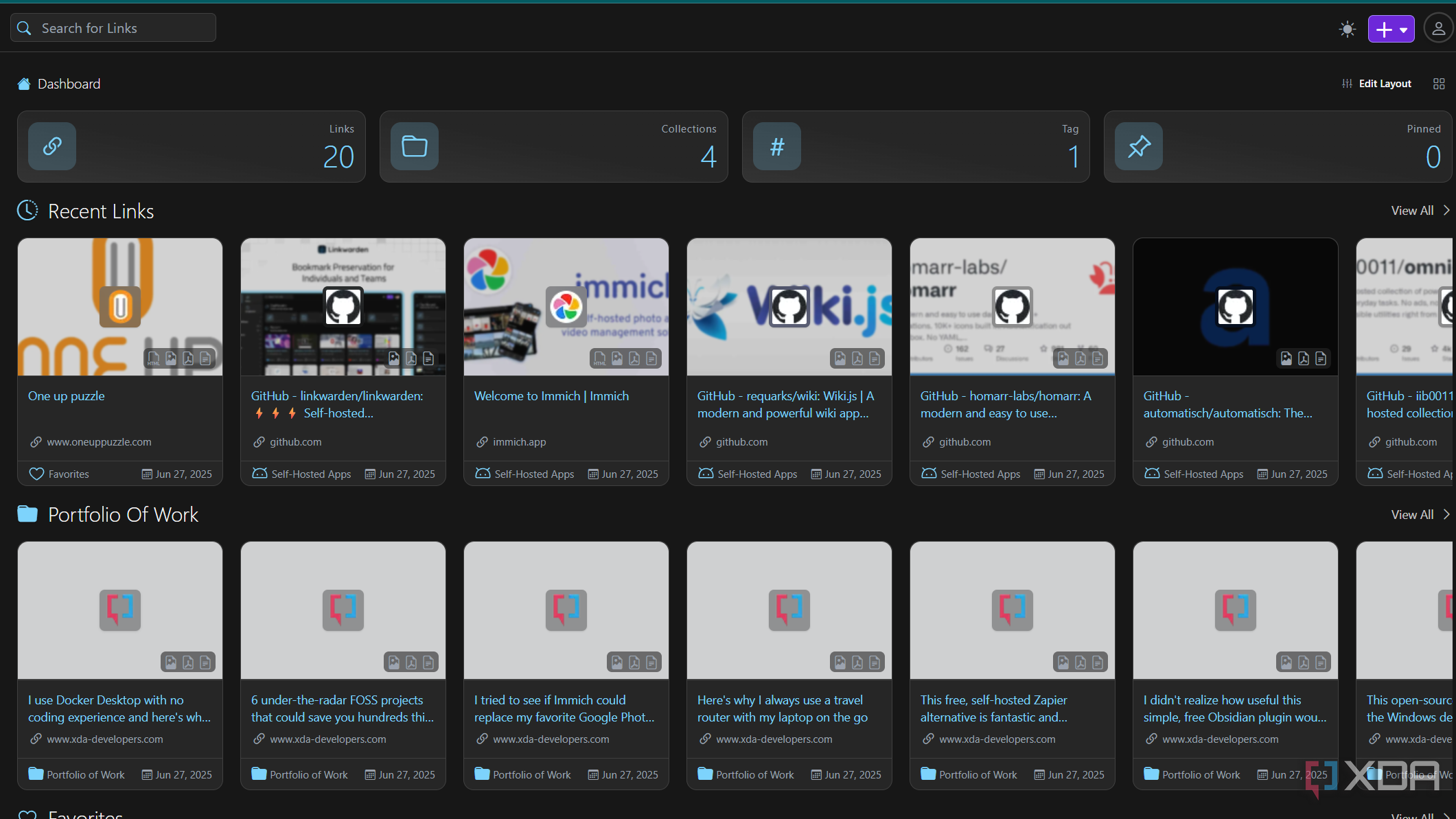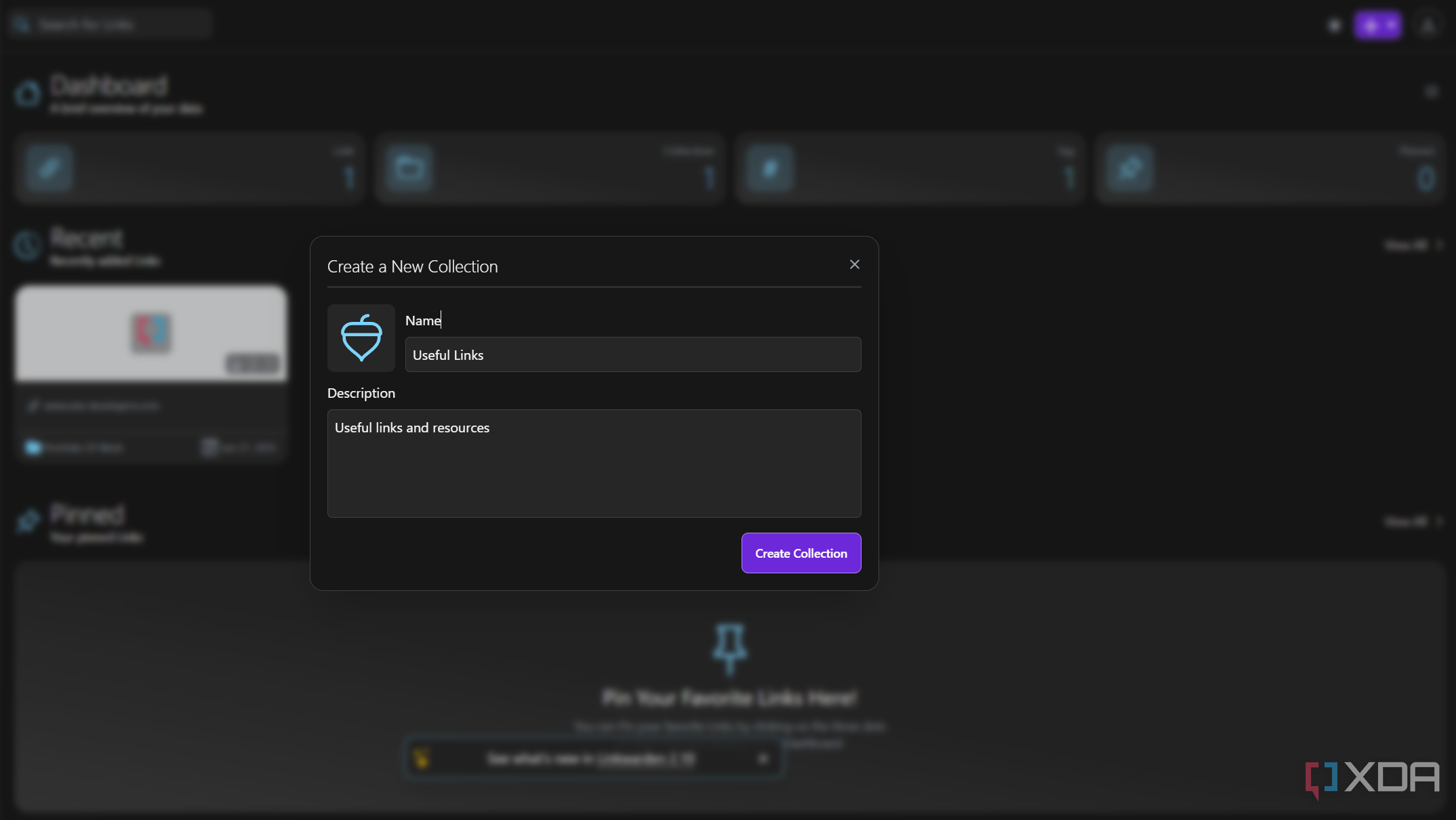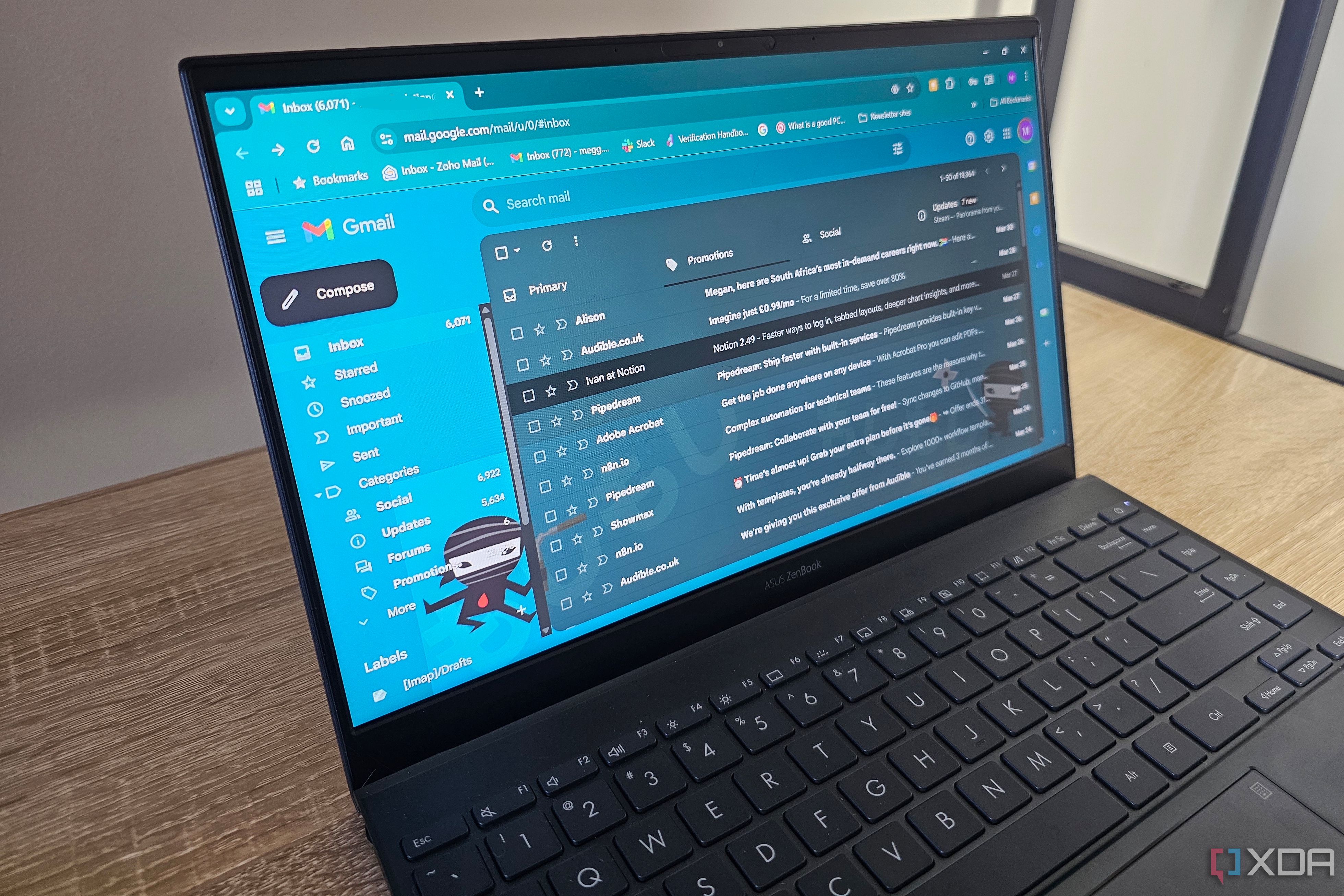Website bookmarks are an essential way to keep shortcuts to your favorite sites and save links you want to check out later. While there are plenty of proprietary tools you can use to save bookmarks, Linkwarden provides a hub where you can save links to store on your own self-hosted server.
I tried out Linkwarden for a few days to check out its features, with its ability to preserve linked content proving to be a major bonus. As a result, it may just become one of my favorite self-hosted services.

Related
5 reasons I switched to a self-hosted, bookmarking solution
From privacy control to archiving and cross-platform access, Hoarder redefines how you manage and organize bookmarks effectively and securely.
What is Linkwarden?
A preservation-focused approach to bookmarking

Linkwarden is an open-source bookmarking and link preservation app that allows you to store link shortcuts, create offline copies of web pages, and organize your bookmarks. While the developers offer a cloud-hosted solution, you can also deploy Linkwarden on your own server or in a Docker container to self-host the software.
What sets Linkwarden apart from a general bookmarking app is its focus on link preservation. This is particularly useful at a time when link rot seems more pervasive than ever. When bookmarking a link, Linkwarden can create automatic backups of the page in the form of PDFs, screenshots, and readable HTML documents. You can also set Linkwarden to submit a link to the Internet Archive.
Another useful feature is that you can share your Linkwarden instance with collaborators or even make your instance viewable to the public. For enhanced usability, you can create mobile shortcuts to Linkwarden by installing it as a Progressive Web App (PWA) on your smartphone or tablet.
How to get started with self-hosting Linkwarden
The setup is simple

Linkwarden can be deployed as a Docker container or through manual installation on a server. I set up the service using Docker Desktop, configuring my secret keys and Postgres password. Once you have Linkwarden up and running, you'll be greeted by a welcome page that allows you to register a username and password.
Once this is done, you can get started with your bookmarking and archiving. I first set up a new collection, which allowed me to categorize my links from the get-go. But you can also start uploading links as general Uncategorized links.
Depending on how you're using Linkwarden, you'll want to set up the formats you want to preserve links in (which you can adjust under Settings -> Preference) and add additional users (under Server Administration) if you want to add collaborative features to your Linkwarden instance.
Linkwarden also has a browser extension that you can use to make saving bookmarks easier. I skipped this step because I generally want to keep my browser extensions at a minimum, so I don't mind adding bookmarks manually. But since it's available on the Chrome and Firefox web stores, it's easy enough to install and set up.
Using Linkwarden for web preservation and more
Set up your own personal archive
While I'd argue that your bookmarks bar in your browser is the most useful place to keep your shortcuts, Linkwarden benefits from its ability to create preservation documents and the ability to collaborate with others to store links.
I set up a few of my favorite shortcuts in Linkwarden, but I also created a collection to store copies of my work. I've been a journalist for a decade now, and there have been multiple occasions where I've lost the ability to link to examples of my work due to a site retiring a section or removing old content. It's difficult to manually save web pages in multiple formats for later usage, but Linkwarden automates this process.
I also created a collection for the self-hosted apps I use, allowing me to back up links to documentation and installation instructions. One of my frustrations with open-source software is that projects can often be abandoned or taken down. By using Linkwarden, I can ensure that I always have access to the relevant documentation for my self-hosted apps. Most open-source developers leave their documentation available to view on GitHub, but Linkwarden gives me peace of mind in case a repository is fully taken down.
Another useful feature in Linkwarden is the ability to import and export links. In fact, in the 2.11 version of Linkwarden, the developer introduced the ability to import saved links from Pocket, making it a viable self-hosted Pocket replacement now that the platform is shutting down.

Related
3 reasons I self-host everything but my own email server
I run my own servers for everything from notes to media. But email? Here's why it’s the one thing I won’t self-host.
Linkwarden has a lot going for it
It's rare that I come across a self-hosted tool where the development is so active and the creators are so responsive to current trends. This is where a lot of Linkwarden's potential lies. Not only is it creating a way for ordinary people to easily back up web pages in an age of pervasive link rot, but it also introduces features based on community feedback and gaps left in the market.
I look forward to seeing how the tool develops over time and what new ideas the developers come up with.

.png)










 English (US) ·
English (US) ·